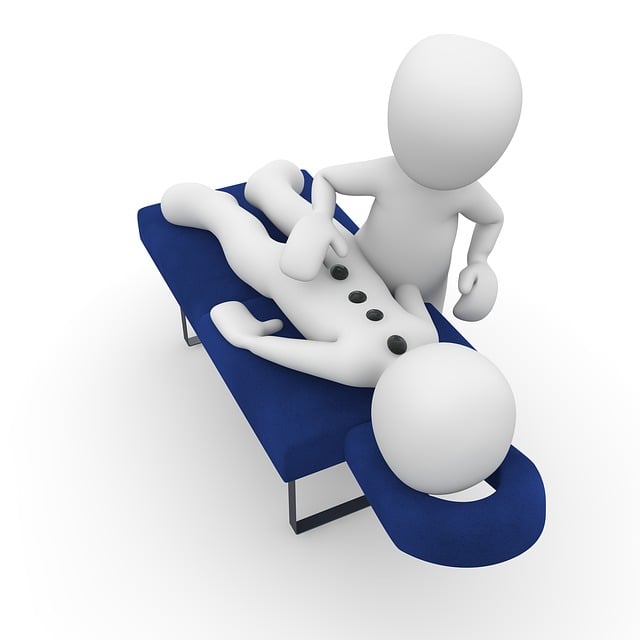Cold plunging, or cold water therapy, is a powerful yet simple tool to manage stress and anxiety. By exposing yourself to water below 59°F, your body stimulates nerve endings, narrows blood vessels, and activates the parasympathetic nervous system, leading to reduced heart rate, lower blood pressure, muscle tension relief, and improved mental clarity. Beginners should research its benefits, prepare mentally and physically, choose a safe location, and enter water gradually. Regular cold exposure builds resilience against stress and anxiety, offering natural support for mental well-being through endorphin release. Easy practices like morning cold showers or short dips can significantly reduce stress and promote relaxation.
“Unwind and rejuvenate with the ancient practice of cold plunges—a powerful tool for stress and anxiety relief. This guide offers a beginner’s roadmap to harnessing the therapeutic benefits of cold water therapy. From understanding the science behind cold exposure to safety tips for your first plunge, we’ll explore how this simple technique can significantly improve mental health and create a daily sense of calm. Embrace the chilling journey towards inner peace.”
Understanding Cold Plunges and Their Impact on Stress Relief
Cold plunges, also known as cold water therapy or cryotherapy, involve briefly exposing yourself to cold water, usually at temperatures below 59°F (15°C), for a short period. This practice has gained popularity due to its potential benefits for stress relief and mental health. The concept is simple yet powerful: submerging yourself in cold water can trigger a range of physiological responses that have been shown to reduce stress and anxiety levels.
When you immerse yourself in cold water, your body experiences a series of reactions. It narrows blood vessels, reducing blood flow to extremities, and activates the parasympathetic nervous system, which is responsible for the “rest and digest” functions. This activation promotes feelings of calmness and relaxation, counteracting the physiological effects of stress. The calming effects of cold plunges can help lower heart rate and blood pressure, reduce muscle tension, and improve overall mental clarity and well-being, making it an effective tool for managing stress and anxiety.
Getting Started: Preparation and Safety Measures for Beginners
Starting a cold plunge journey as a beginner requires careful preparation and an understanding of safety measures to ensure a positive experience. Before taking the plunge, educate yourself on the practice’s benefits for stress and anxiety relief. Research has shown that cold water therapy can significantly enhance mental health by reducing symptoms of depression and promoting relaxation through the stimulation of nerve endings, leading to increased endorphin release.
To prepare, choose a suitable location, such as a natural body of water or a dedicated cold plunge pool, ensuring easy access and safety features. Dress appropriately in warm layers that can be quickly removed for immersion. It’s crucial to enter the water gradually; begin with shallow areas and slowly increase depth as your body adapts. Always have someone nearby who is aware of your endeavor, especially during initial trials. Regular practice, combined with mindfulness techniques, will enhance the calming effects of cold plunges, providing an effective tool for managing stress and anxiety.
Unlocking the Benefits: How Cold Water Therapy Can Improve Mental Health
Cold water therapy, or cold plunging, has gained attention as an effective method to enhance mental well-being and manage stress and anxiety. When you immerse yourself in a cold environment, whether it’s a cold plunge or a brief cold shower, your body undergoes a series of physiological changes that have profound effects on your mind. The initial shock of cold water triggers a response from the nervous system, releasing endorphins, often referred to as ‘feel-good’ hormones, which can significantly reduce stress and promote a sense of calm.
Regular exposure to cold water has been linked to improved mood and cognitive function. The calming effects of cold plunges can help lower anxiety levels, improve focus, and enhance overall mental clarity. This ancient practice, embraced by many for its therapeutic benefits, offers a simple yet powerful tool for beginners looking to navigate stress and anxiety. By embracing the cold, individuals can unlock a natural way to support their mental health and discover a sense of resilience in the face of daily pressures.
Incorporating Cold Plunges into Your Routine for Daily Calmness
Incorporating cold plunges into your daily routine can be a game-changer for managing stress and anxiety. Cold water therapy, such as immersing yourself in an ice bath or taking a cold shower, has been shown to have profound benefits for mental health. The sudden exposure to cold triggers a physiological response that helps reduce levels of cortisol, the stress hormone, and increases the release of endorphins, our body’s natural mood elevators. This can lead to immediate calming effects and a sense of clarity.
Regular cold plunges can help train your mind and body to better cope with stressful situations. By subjecting yourself to brief periods of cold exposure, you’re essentially conditioning your nervous system to respond less intensely to stressors. Over time, this can translate into improved resilience against stress and anxiety in daily life. Whether it’s a quick cold shower in the morning or a short dip in an ice-cold pool, these practices can be easily integrated into your routine, offering a simple yet effective way to promote mental well-being.
Cold plunges offer a powerful and accessible tool for beginners seeking natural stress relief and enhanced mental well-being. By understanding the science behind cold water therapy and following safe practices, you can unlock the calming effects of cold exposure, reducing anxiety and promoting relaxation. Incorporating this practice into your routine can be a game-changer in managing daily stressors, leading to a more balanced and peaceful state of mind. So, dive into the world of cold plunges and experience the benefits firsthand for a revitalized and serene you.
